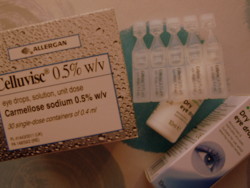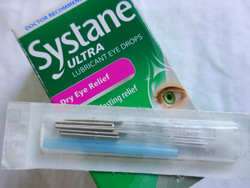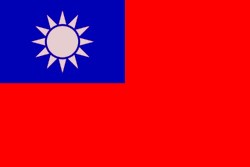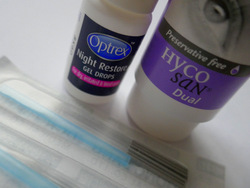There is growing interest by researchers worldwide in acupuncture for the eyes. Eye conditions are routinely treated with acupuncture in Chinese hospitals. Discussions on eye diseases and acupuncture treatment are to be found in early Chinese medical texts, particularly in the Song Dynasty (960-1279 AD).
Do take your eye health seriously. Our eyes are more challenged in the modern world, by things like long hours of screen use, or air conditioning in the workplace. See an optician for an eye examination at least every two years, even if you don’t wear glasses. It sometimes detects other underlying health problems.
Eat a diet rich in fruit and vegetables, so that you have some protection from free radicals and oxidants which it is thought may contribute to the development of age-related macular degeneration. Try to get plenty of vitamins A, C, & E, omega 3 and 6 fatty acids, plus lutein and zeaxanthin. Useful foods would be kale, red or orange peppers, spinach, lettuce, leek, broccoli, peas, sweetcorn, parsley, salmon and eggs. Lutein may also confer protection against the effects of light at the blue end of the spectrum, encountered through long hours looking at a screen every day.
On the subject of screen time, try to reduce it. When you are on screen, increase your blinking to help lubricate the eyes, and regularly look into the distance eg out of a window, to allow them to relax. Take regular exercise, and move around during the working day to promote circulation to this highly vascular tissue.
With some conditions such as dry eye, recurrent conjunctivitis and blepharitis, there is much useful lifestyle and self-care advice that I can suggest to you. It is important that you follow these recommendations if acupuncture is to provide relief.
Below you can read the results of some of the research which has been undertaken into acupuncture for the eyes. You will not find research on every possible eye complaint, so do not be disappointed if yours is not there. You are always welcome to give me a call and discuss things.
The trials vary in quality, but systematic reviews and randomised controlled trials are generally considered to provide the highest quality evidence. If you would like to read more about evidence quality, I would refer you to the British Acupuncture Council’s description of the evidence pyramid.


 “Can acupuncture help dry eyes?” was the question posed by researchers in Korea, who undertook a systematic review involving 21 randomised controlled trials, and 1542 eyes. Compared with artificial tears, acupuncture was more effective by several different measures. Further analysis of the data suggests acupuncture is optimally given two to three times per week for 21 to 30 days.
“Can acupuncture help dry eyes?” was the question posed by researchers in Korea, who undertook a systematic review involving 21 randomised controlled trials, and 1542 eyes. Compared with artificial tears, acupuncture was more effective by several different measures. Further analysis of the data suggests acupuncture is optimally given two to three times per week for 21 to 30 days. South Korean researchers have shown that acupuncture helps post-surgical dry eye syndrome, when used alongside usual care. A total of 18 patients with dry eye syndrome occurring after refractive surgery, received either acupuncture plus usual care, or usual care alone. Acupuncture was given three times per week for a total of 12 treatments.
South Korean researchers have shown that acupuncture helps post-surgical dry eye syndrome, when used alongside usual care. A total of 18 patients with dry eye syndrome occurring after refractive surgery, received either acupuncture plus usual care, or usual care alone. Acupuncture was given three times per week for a total of 12 treatments.  A research team in Taiwan studying acupuncture for glaucoma, has shown that it can be used to lower intraocular pressure. In their randomised, three-arm trial, 45 glaucoma patients were randomised to receive either acupuncture, sham acupuncture, or electroacupuncture twice a week for two weeks.
A research team in Taiwan studying acupuncture for glaucoma, has shown that it can be used to lower intraocular pressure. In their randomised, three-arm trial, 45 glaucoma patients were randomised to receive either acupuncture, sham acupuncture, or electroacupuncture twice a week for two weeks.  A team of American researchers led by the Department of Ophthalmology at the University of Pittsburgh Medical Center, has shown acupuncture can be a helpful addition to routine clinical treatment of dry eye. A cohort of 49 patients were randomly assigned to receive either true (24) or (25) sham acupuncture. Treatment was given twice, on consecutive days. One week after treatment, both groups exhibited improvements on the ocular surface disease index, but at six months, the improvement was significantly greater in the true acupuncture group. By three months, true acupuncture was associated with improvements in many subjective measures of dry eye symptoms (eg scratchiness, redness & discomfort), although several objective measures remained unchanged. Even though not statistically significant, true acupuncture patients required fewer artificial tears.
A team of American researchers led by the Department of Ophthalmology at the University of Pittsburgh Medical Center, has shown acupuncture can be a helpful addition to routine clinical treatment of dry eye. A cohort of 49 patients were randomly assigned to receive either true (24) or (25) sham acupuncture. Treatment was given twice, on consecutive days. One week after treatment, both groups exhibited improvements on the ocular surface disease index, but at six months, the improvement was significantly greater in the true acupuncture group. By three months, true acupuncture was associated with improvements in many subjective measures of dry eye symptoms (eg scratchiness, redness & discomfort), although several objective measures remained unchanged. Even though not statistically significant, true acupuncture patients required fewer artificial tears.